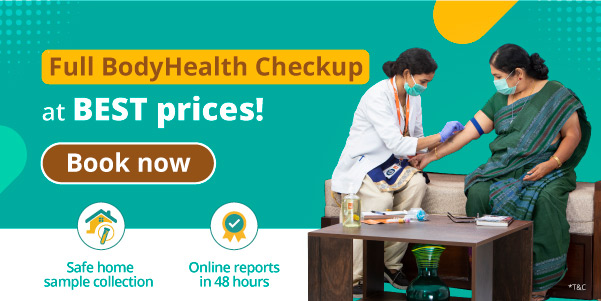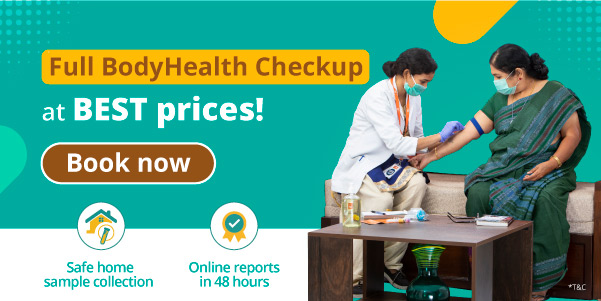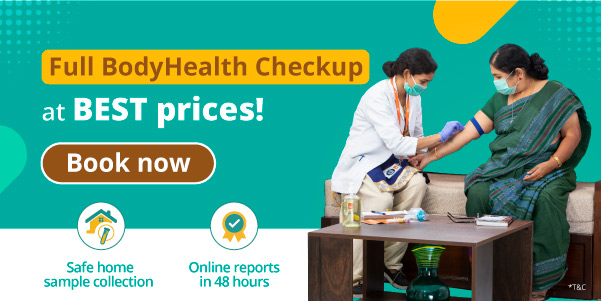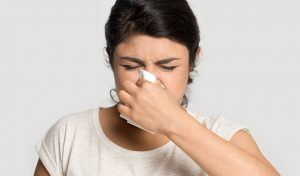The COVID-19 pandemic finally saw a silver lining amongst the dark clouds when vaccines were rolled out to the public after extensive research. India welcomed vaccines which proved their efficacy in other nations. India’s vaccination drive got a boost with the introduction of the Sputnik V and Novavax vaccines. COVID-19 vaccination in India got a further boost when Cipla announced that they will start manufacturing the Moderna Vaccine in India.
The Moderna vaccine has been developed in Massachusetts in the U.S.A. The Drugs Controller General of India (DGCI) gave the go-ahead to Cipla, a Mumbai-based drug manufacturing company to start the production of these vaccines. As per the World Health Organisation, the Moderna vaccine has an efficacy percentage of around 94.1% against the COVID-19. The vaccine offers strong COVID-19 immunity and the vaccine is scheduled to be produced under the Emergency Use Authorisation (EUA).
A person allergic to polyethylene glycol (PEG) should not get vaccinated with the Moderna vaccine. It should only be administered by intramuscular injection and in a person with a bleeding disorder using a 23 or 25-gauge needle and applying firm pressure on the injection site for 2 minutes is recommended.
Dr. Ashish Bajaj, M.B.B.S., M.D
The vaccine has been highly effective in the U.S.A. in providing COVID-19 immunity. The vaccine can be officially rolled out to the Indian public after it completes a 7-day safety assessment, which is to be tried out on 100 beneficiaries. The vaccine is safe to be taken by most adults and no severe side effects have been noted when the vaccine was taken by people. It has been noticed that the body starts developing immunity to COVID-19 around 14 days after the vaccine is administered. The vaccine has a shelf life of almost 7 months and is effective for 30 days if opened.
The Moderna vaccine is proven to be effective against strains of COVID-19 like the Alpha variant (B.1.1.7) and the Beta variant (501Y.V2). Parent company Moderna Inc. is still testing the vaccine’s efficacy against the new Delta strain of COVID-19. Results are looking positive regarding the efficiency of the vaccine in offering immunity against the new strain.
Like most vaccines, the Moderna vaccine in India is planned to be administered in two doses of 0.5 ml each. The tentative duration between the two doses is set at 24 days, however, it might be extended up to 42 days depending on the production capacity and the number of vaccines getting rolled out.
Moderna’s COVID-19 shot, mRNA-1273, has been found to be the most efficacious of all. While the company wrapped up trials in, it has found that the vaccine has an efficacy rate of over 91%, with immunity peaking after administering two doses.
Dr. M.G. Kartheeka, MBBS, MD
Cipla vaccine trials in India are slated to be completed at the earliest. When effective trials on 100 beneficiaries are completed the vaccines will be made available to the public. It is expected to be rolled out to the public in the middle or end of July when finer aspects of the trials are completed and it is deemed okay to be used.
The vaccine needs to be stored under negative 20 ° Celsius, which has made production difficult due to the storage requirements. The vaccine is expected to be rolled out in the private sector first as the storage requirements make the cost of the vaccine higher than some of its counterparts.
The third wave of COVID-19 is still expected to hit India even though vaccination drives are ongoing. The introduction of the Moderna vaccine in India can be a boost to fight the Delta strain and if it gets approved by the USFDA for emergency usage in India, the vaccines will start to be administered without further trials on home soil. WHO has been supporting the results which indicate that the Moderna vaccine is showing efficiency in providing immunity against the delta strain. To counter the third wave and the rise in Delta variants, India might also start importing the Moderna vaccine to increase the vaccinations.
Even though vaccinations in India are ongoing the percentage of vaccinated people still stands at only 6% of the total population. Vaccinating such a large population is difficult and the introduction of new vaccines in India like the Moderna vaccine is a huge boost.
The population needs to be more wary about getting vaccinated and staying safe by following all the guidelines issued by the government. New vaccines bring hope that the world will get back to normal and overcome COVID-19.
Disclaimer: The information provided here is for educational/awareness purposes only and is not intended to be a substitute for medical treatment by a healthcare professional and should not be relied upon to diagnose or treat any medical condition. The reader should consult a registered medical practitioner to determine the appropriateness of the information and before consuming any medication. PharmEasy does not provide any guarantee or warranty (express or implied) regarding the accuracy, adequacy, completeness, legality, reliability or usefulness of the information; and disclaims any liability arising thereof.
Links and product recommendations in the information provided here are advertisements of third-party products available on the website. PharmEasy does not make any representation on the accuracy or suitability of such products/services. Advertisements do not influence the editorial decisions or content. The information in this blog is subject to change without notice. The authors and administrators reserve the right to modify, add, or remove content without notification. It is your responsibility to review this disclaimer regularly for any changes.
By now, we are all aware that the 2nd wave of COVID-19 has arrived. According to the latest coronavirus news, several states have imposed or renewed COVID restrictions. Vaccinations have been liberalized and accelerated so that more people can get the COVID vaccine as soon as possible.
The surge of COVID-19 cases in India has happened quite suddenly and has taken a lot of people by surprise.
It’s no wonder that people are asking what the second wave is, what triggered it and will the same COVID precautionary measures we adopted throughout last year suffice? Read on for all the answers.
India recorded the first few cases of COVID-19 in March 2020 and then on until September of 2020, COVID cases continued increasing. After September, fewer cases began to be reported and the first wave of COVID officially began to decline. By the beginning of 2021, only a handful of cases were reported in PAN India and normalcy was almost restored.
However, from February onwards the cases began to rise exponentially and in 1 month (February to March) we recorded as many cases as in 6 months of 2020. This is the second wave because it is the second time that COVID cases are on the rise.
What exactly caused the second wave is unknown. However, this second wave could have been triggered by a few new strains of the coronavirus including the UK virus, South Africa virus and the double mutant. These mutants of coronavirus are very infectious and have a high R-value (the number of people who can be infected from one person).
2 other reasons why the second wave has spread like wildfire are:
The second coronavirus wave is of concern because this new mutant SARS-COV is very contagious and has learned to dodge our antibodies. Even the 18-45 age group, who supposedly has strong immunity, is susceptible. This group has been called the COVID-19 super-spreader. They are the ones who have to be out in public the most. And once they come home with the infection, they rapidly spread it to others in the house/apartment building/housing society. This new COVID-19 strain is also infecting children.
Even though the new strains of COVID are accompanied by new symptoms which do not mean that the old symptoms are no longer seen. COVID positive people may still have a fever, body ache, loss of smell/ taste, soreness or dryness in the throat, runny nose and cough. However this time, solitary symptoms may confuse people. For example, someone with diarrhoea may attribute it to a stomach infection but it is also now a symptom of COVID. Some new COVID-19 symptoms have been noticed. Sometimes just one of these symptoms is exhibited –
Here’s What You Should Do If You Develop Symptoms Of COVID
The new double-mutated coronavirus too spreads through droplets from infected persons or through contact with contaminated surfaces. That is why the same precautions as before will help you now –
If you notice anyone in your family or yourself showing the symptoms of COVID-19, practise home isolation and book a COVID test right away. Contact your doctor even before the reports arrive. Follow the COVID-19 protocol at all times.
All you need is to book a test to check your health.

Disclaimer: The information provided here is for educational/awareness purposes only and is not intended to be a substitute for medical treatment by a healthcare professional and should not be relied upon to diagnose or treat any medical condition. The reader should consult a registered medical practitioner to determine the appropriateness of the information and before consuming any medication. PharmEasy does not provide any guarantee or warranty (express or implied) regarding the accuracy, adequacy, completeness, legality, reliability or usefulness of the information; and disclaims any liability arising thereof.
Links and product recommendations in the information provided here are advertisements of third-party products available on the website. PharmEasy does not make any representation on the accuracy or suitability of such products/services. Advertisements do not influence the editorial decisions or content. The information in this blog is subject to change without notice. The authors and administrators reserve the right to modify, add, or remove content without notification. It is your responsibility to review this disclaimer regularly for any changes.
The second wave of coronavirus has hit us harder than the first wave. This time around, the new strain of COVID-19 is much more infectious and is spreading faster.
It is best suggested to seek medical advice from a doctor as soon as you develop the first symptom. Do not wait for your reports to arrive, nor should one self-diagnose or consume any medicines without consulting your doctor. For the majority of people who have come down with COVID-19, home isolation, monitoring of oxygen saturation levels, temperature, healthy eating and complete rest along with certain medicines are suggested by doctors.
With lakhs of people contracting COVID-19 every day in India, it is not surprising that the medicines which may aid the treatment of COVID-19 detected patients, are flying off the shelves. Due to the sharp rise in COVID-19 cases in India, the demand for such medicines is high and the supply is unable to match it. As a result, many people who need COVID-19 medication are unable to get their hands on these medicines.
Worry not! The good news is that in case of unavailability of such medicines there are many alternative medicines of the same therapeutic composition that can help.
We are here to assist you with suggestions of alternative medicines in case you are not able to find a particular medicine your doctor has prescribed. However, it is strongly advised that before consuming any such medication for COVID-19-related treatment (including the alternative medicines suggested by us), the caregiver/patient should consult a qualified medical practitioner.
We have created a table of medicines with the same composition available as alternate brand names that may be used for reference purposes:
| Medicine | Different Brands Available |
| FAVIPIRAVIR(400.0 MG)-TABLET | FABIFLU 400MG TABLETS |
| CODIFAB 400MG TABLETS | |
| CIPLENZA 400MG TABLETS | |
| FLUGUARD 400MG TABLETS | |
| FAVILOW 400MG TABLETS | |
| FERAVIR 400MG TABLETS | |
| FAVENZA 400MG TABLETS | |
| AZITHROMYCIN(500.0 MG)-TABLET | AZITHRAL 500MG TABLETS |
| AZEE 500MG TABLETS | |
| AZICIP 500MG TABLET | |
| AZAX 500MG TABLET | |
| AZICURE 500MG TABLETS | |
| AZIWOK 500MG TABLETS | |
| AZIFAST 500MG TABLETS | |
| PARACETAMOL (650.0 MG)-TABLET | DOLO 650MG TABLETS |
| CALPOL 650MG TABLETS | |
| PARACIP 650MG TABLET | |
| CROCIN 65OMG TABLET | |
| P 650MG TABLETS | |
| LANOL ER 650MG TABLETS | |
| DOLOPAR 650MG TABLETS | |
| PARASAFE 650MG TABLETS | |
| DOXYCYCLINE 100MG CAPSULE | |
| CADOXY 100 MG CAPSULE | |
NICODOXY 100MG CAPSULE | |
LENTECLIN 100MG CAPSULE | |
| IVERMECTIN 12MG TABLETS | NEW IVERMECTOL 12MG TABLETS |
| SCAVISTA 12MG TABLETS | |
| ITIN 12MG TABLETS | |
| VERMACT 12MG TABLETS | |
| IVERHOPE 12MG TABLETS | |
| IVECOP 12MG TABLETS | |
| IVERNOCK 12MG TABLETS | |
| SCABOVER 12MG TABLETS | |
| VITAMIN C / ASCORBIC ACID(500.0 MG) | LIMCEE 500MG ORANGE FLAVOUR CHEWABLE TABLETS |
| NEW CELIN 500MG TABLET | |
| TRUECEE CHEWABLE TABLETS | |
| EUCEE 500MG CHEWABLE TABLETS | |
| ZINC Containing TABLETS | ZINCONIA 50MG TABLET |
| BECOZINC CAPSULE | |
| CUROVIT TABLETS | |
| SURBEX XT TABLET | |
| BECOSULE Z CAPSULE | |
| FAVIPIRAVIR(200.0 MG)-TABLET | FABIFLU 200MG TABLETS |
| CODIFAB 200MG TABLET | |
| AVIGAN 200MG TABLETS | |
| CIPLENZA 200MG TABLETS | |
| FLUGUARD 200MG TABLETS | |
| FAVILOW 200MG TABLETS | |
| FAVENZA 200MG TABLETS | |
| AZITHROMYCIN(250.0 MG)-TABLET | AZITHRAL 250MG 10 TABLETS |
| AZEE 250MG TABLETS | |
| AZICIP 250MG TABLETS | |
| AZAX 250MG TABLETS | |
| AZILIDE 250MG TABLETS | |
| AZIWOK 250MG TABLETS | |
| AZIFAST 250MG TABLETS | |
| PARACETAMOL(500.0 MG)-TABLET | CALPOL 500MG TABLETS |
| DOLO 500MG TABLETS | |
| PARACIP 500MG TABLETS | |
| METACIN 500MG | |
| P 500MG TABLETS | |
| PYRIGESIC 500MG TABLET | |
| PACIMOL 500MG TABLETS | |
| PCM 500MG TABLETS |
Click here to order medicines now.
Meanwhile, people who have tested positive for COVID-19 must stay at home and should not come in contact with other members of their household or their neighbours. You can step out only when your isolation period is over and your doctor advises you the same.
Everyone (including people who had contracted COVID-19 in the past), needs to follow every COVID-19 precaution, from wearing a mask, sanitizing, thorough washing and cleaning to staying at home as much as possible.
Also, if you haven’t been vaccinated yet, please register for the COVID-19 vaccine right away.
Unable to book a test in any lab. Book it here now!

Disclaimer: The information included at this site is for educational purposes only and is not intended to be a substitute for medical treatment by a healthcare professional. Because of unique individual needs, the reader should consult their physician to determine the appropriateness of the information. If you are considering taking any of the alternative medicines mentioned above, consult your doctor first.
With the current death toll in Maharashtra having crossed 61,000 and the existing cases of COVID-19 in the state being more than 40 lakhs, the entire state has declared a ‘Break-the-chain’ initiative. Let’s take a look at some of the key points of contact for the people of Mumbai during these dire times.
The state of Maharashtra has designated several hospitals and treatment facilities to help patients affected with COVID-19 in Mumbai and most of these have a decent rate of bed availability as well. Here’s a list of all such hospitals in Mumbai:
The Government of Maharashtra has assigned several public hospitals as designated COVID-19 vaccination centres. A list of some of the government, as well as private vaccination centres with the best medical facilities in Mumbai, are given below:
Some of the key organisations that are currently providing donors for plasma therapy and facilitating direct contact of the families of patients with donors, are Team SOS, Dhoondh, PlasmaDonor.in, PINT, PlasmaLine.in, GiveRed.in, SimplyBlood.com, CityDonors.com and NDTV Plasma Drive.
The availability of this crucial medicine that is being used in the treatment of patients suffering from COVID-19 has been tough, to say the least. Due to the massive surge in COVID-19 cases in the state, there are only a few medicine distributors who have the availability of Remdesivir in their stock. Some of these distributors can be contacted by phone:
Due to the rising COVID-19 cases, the use of public transportation will be limited to medical staff and government employees only, while people visiting other districts and cities are being marked and compelled to undergo a 14 day home quarantine.
Coming to the recent lockdown and movement restrictions imposed by the Government of Maharashtra, the Mumbai Police have initiated an ingenious system of colour-coded stickers to put on vehicles who are travelling for essential services. The red colour sticker is to be used by all those who are travelling to the hospital or for any other health emergency. The yellow sticker is to be used for any other essential services, while the green colour sticker is to be used for travelling to the grocery store or delivering food items.
Many government and private agencies are providing transportation facilities to hospitals in case of emergencies and the people of Mumbai can avail of these ambulance services by contacting the providers given below:
The chart given below contains the contact numbers of doctors who have taken up the initiative of telephonic guidance during different times of the day.
| Name of Doctor | Contact Number | Time of Consultation |
| Dr Tushar Shah | 9321469911 | 8 am to 12 pm |
| Dr M Bhatt | 9320407074 | 8 am to 12 pm |
| Dr D Doshi | 9820237951 | 8 am to 12 pm |
| Dr G Kamath | 9136575405 | 12 pm to 4 pm |
| Dr S Manglik | 9820222384 | 12 pm to 4 pm |
| Dr J Jain | 7021092685 | 12 pm to 4 pm |
| Dr N Zaveri | 9321489748 | 4 pm to 8 pm |
| Dr S Ansari | 7045720278 | 4 pm to 8 pm |
| Dr L Kedia | 9321470560 | 4 pm to 8 pm |
| Dr N Kuma | 8104605550 | 8 pm to 11 pm |
| Dr P Bhargav | 9833887603 | 8 pm to 11 pm |
| Dr R Chauhan | 9892135010 | 8 pm to 11 pm |
Since the lockdown began in March 2020 and officially ended around June to July 2020, people have been forced indoors and this has resulted in the development of several mental health issues. The BMC has taken a bold step by providing a mental health helpline number (which is: 1800 120 820 050) to such people.
The Maharashtra Government as well as several local municipal bodies have undertaken the initiative to provide consultation and relief to the people with the help of several helpline numbers that are currently active across the state.
The Government of Maharashtra has announced a technical lockdown except for public transport and essential services from 22nd April to 1st May 2021. Moreover, similar curbs have also been placed on both public and private offices within Maharashtra till 1st May 2021 as a response to the rising cases of COVID-19 within the state.
With this information at hand, you will be better equipped to deal with any COVID-related emergency. Stay safe and take necessary precautionary measures.
Remember to knock out every obstacle that comes in the way of keeping you healthy.

Disclaimer: The information provided here is for educational/awareness purposes only and is not intended to be a substitute for medical treatment by a healthcare professional and should not be relied upon to diagnose or treat any medical condition. The reader should consult a registered medical practitioner to determine the appropriateness of the information and before consuming any medication. PharmEasy does not provide any guarantee or warranty (express or implied) regarding the accuracy, adequacy, completeness, legality, reliability or usefulness of the information; and disclaims any liability arising thereof.
Links and product recommendations in the information provided here are advertisements of third-party products available on the website. PharmEasy does not make any representation on the accuracy or suitability of such products/services. Advertisements do not influence the editorial decisions or content. The information in this blog is subject to change without notice. The authors and administrators reserve the right to modify, add, or remove content without notification. It is your responsibility to review this disclaimer regularly for any changes.
| Name | Address | Contact Number |
| KGMU (King George’s Medical University) | Shah Mina Rd, Chowk, Lucknow, Uttar Pradesh | 0522 225 7540 |
| IGGMCH (Indira Gandhi Government Medical College & Hospital) | C.A. Road, Nagpur | 0712 272 5423 |
| AIIMS | Sri Aurobindo Marg, Ansari Nagar, Ansari Nagar East, New Delhi | 011 2658 8500 |
| SMS (Sawai Man Singh Medical College) | Jawahar Lal Nehru Marg, Ashok Nagar, Jaipur, Rajasthan | 0141 270 8836 |
| Kasturba Medical College | 17, Khandubhai Desai Road, Near Rasraj Hotel, Vile Parle (west), near ACME Ghar, Mumbai, Maharashtra | 0820 292 2367 |
| National Institute of Virology | 20-A, P B No 11, Dr Ambedkar Road, Pune | 020 2612 7301 |
| ICMR (Indian Council for Medical Research | II Floor of Nirmal Bhawan, ICMR Complex, Poojanhalli Road, Off NH-7, Adjacent to Trumpet Flyover of BIAL Kannamangala, Bangalore | |
| Bangalore Medical College and Research Institute | Fort, K.R. Road, Bangalore | |
| National Institute of Virology Field Unit | Jaya Nagar 1st Block, Jayanagar, Bengaluru, Karnataka | |
| KIPMR (King Institute of Preventive Medicine & Research) | Guindy, Chennai, Tamil Nadu | 044 2250 1520 |
| Gandhi Medical College | Musheerabad, Secunderabad | 040-27502742 |
| Guwahati Medical College | Narakasur Hilltop, Bhangagarh, Guwahati, Assam | 0361 213 4538 |
| National Institute of Virology Field Unit | Vandanam, Kerala | |
| BJMC (Byramjee Jeejeebhoy Medical college) | B j medical college, Asarwa, Gujarat |
 Assess Your Risk of COVID-19 with Coronavirus Risk Assessment Tool The coronavirus threat is looming large. Every one of us should abide by the health advisories to combat coronavirus and keep our loved ones and ourselves safe and healthy.Disclaimer: The information provided here is for educational/awareness purposes only and is not intended to be a substitute for medical treatment by a healthcare professional and should not be relied upon to diagnose or treat any medical condition. The reader should consult a registered medical practitioner to determine the appropriateness of the information and before consuming any medication. PharmEasy does not provide any guarantee or warranty (express or implied) regarding the accuracy, adequacy, completeness, legality, reliability or usefulness of the information; and disclaims any liability arising thereof.
Assess Your Risk of COVID-19 with Coronavirus Risk Assessment Tool The coronavirus threat is looming large. Every one of us should abide by the health advisories to combat coronavirus and keep our loved ones and ourselves safe and healthy.Disclaimer: The information provided here is for educational/awareness purposes only and is not intended to be a substitute for medical treatment by a healthcare professional and should not be relied upon to diagnose or treat any medical condition. The reader should consult a registered medical practitioner to determine the appropriateness of the information and before consuming any medication. PharmEasy does not provide any guarantee or warranty (express or implied) regarding the accuracy, adequacy, completeness, legality, reliability or usefulness of the information; and disclaims any liability arising thereof.Links and product recommendations in the information provided here are advertisements of third-party products available on the website. PharmEasy does not make any representation on the accuracy or suitability of such products/services. Advertisements do not influence the editorial decisions or content. The information in this blog is subject to change without notice. The authors and administrators reserve the right to modify, add, or remove content without notification. It is your responsibility to review this disclaimer regularly for any changes.
The coronavirus epidemic, which began to make headlines in January 2020, has since then claimed more than 2000 lives in China. Globally, 80,155 people have been affected by it ever since. The whole world is worried because we still haven’t come up with a way to halt its progress.
(Available in select cities only – Mumbai, Gurgaon, Bangalore, Jaipur, Hyderabad)
Is India immune to the coronavirus risk? No. Since we have trade relations with China and many people travel back and forth from China both for business and travel, the possibility of a coronavirus outbreak in India is very much possible.
Neurological symptoms or mental health conditions, including difficulty thinking or concentrating, headache, sleep problems, dizziness when you stand, pins-and-needles feeling, loss of smell or taste, and depression or anxiety are some of the common symptoms that can be seen in covid, mental health amongst these is often neglected.
Dr. Ashish Bajaj – M.B.B.S, M.D.
We do not know when this outbreak will die down. Does that mean you cannot travel abroad? Of course not! If you are planning on going abroad, you have to adopt a few precautionary measures to be absolutely safe.

Here are a few things you must do:
Every one of us needs to be cautious. If we all adopt precautionary measures, then we can stop the transmission of coronavirus and keep our loved ones and ourselves safe & protected!
Disclaimer: The above information has been prepared by a qualified medical professional and may not represent the practices followed universally. The suggestions listed in this article constitute relatively common advice given to patients and since every patient is different, you are advised to consult your physician, if in doubt, before acting upon this information. Lupin Limited has only facilitated the distribution of this information to you in the interest of patient education and welfare.
The Coronavirus outbreak is now a global epidemic. Everyone, starting from everyday people like us to government officials, healthcare experts and international organizations like the Centre of Disease Control (CDC) and the World Health Organization (WHO) are worried about how to check this threat.
COVID -19 as a disaster of the 21st century seems harm all of as for a while more as new variants keep emerging. Though it can affect all ages, the elderly and children are the most vulnerable group. Despite many of drugs has been speculated as a treatment agent, only vaccines are effective modality.
Dr. M.G. Kartheeka, MBBS, MD
22 countries have been affected by the coronavirus. They are:
Though adults are the most commonly affected group; it can also be seen in newborns and elderly patients. Unfortunately, elderly patients are the most vulnerable group with higher mortality. Elderly patients, smokers and patients with comorbid conditions are most affected by the disease.
Dr. Ashish Bajaj – M.B.B.S, M.D.
Not much is known about how this condition is caused. It is believed that the virus originated from a wholesale meat/seafood market in China. The viruses can jump from one species to another and that is why humans have contracted the virus from animals.
The signs are similar to that of the regular flu – runny nose, fever, coughing, body ache, sore throat and breathing difficulties.
The virus becomes deadly if it affects the lower respiratory system, as it can result in pneumonia.

In this context, it is important to learn about coronavirus precautions. Here are a few things you must do:
The number of coronavirus cases is rising with every passing day. Take all the precautions mentioned above to protect yourself from the coronavirus threat.
Assess Your Risk of COVID-19 with Coronavirus Risk Assessment Tool
Disclaimer: The above information has been prepared by a qualified medical professional and may not represent the practices followed universally. The suggestions listed in this article constitute relatively common advice given to patients and since every patient is different, you are advised to consult your physician, if in doubt, before acting upon this information. Lupin Limited has only facilitated the distribution of this information to you in the interest of patient education and welfare.